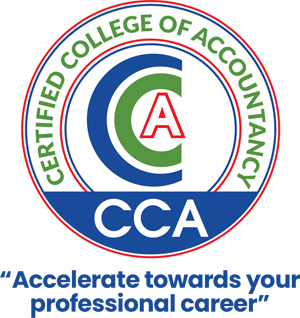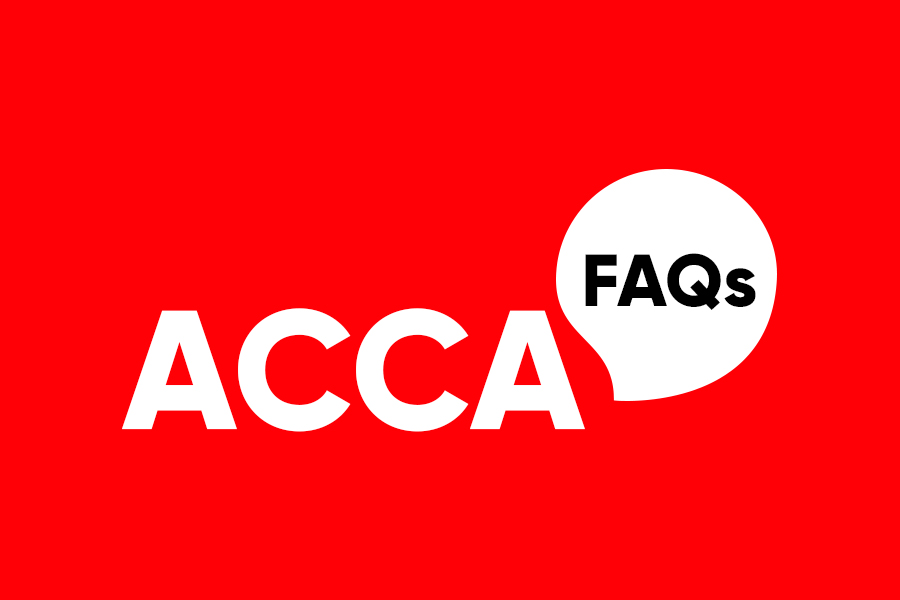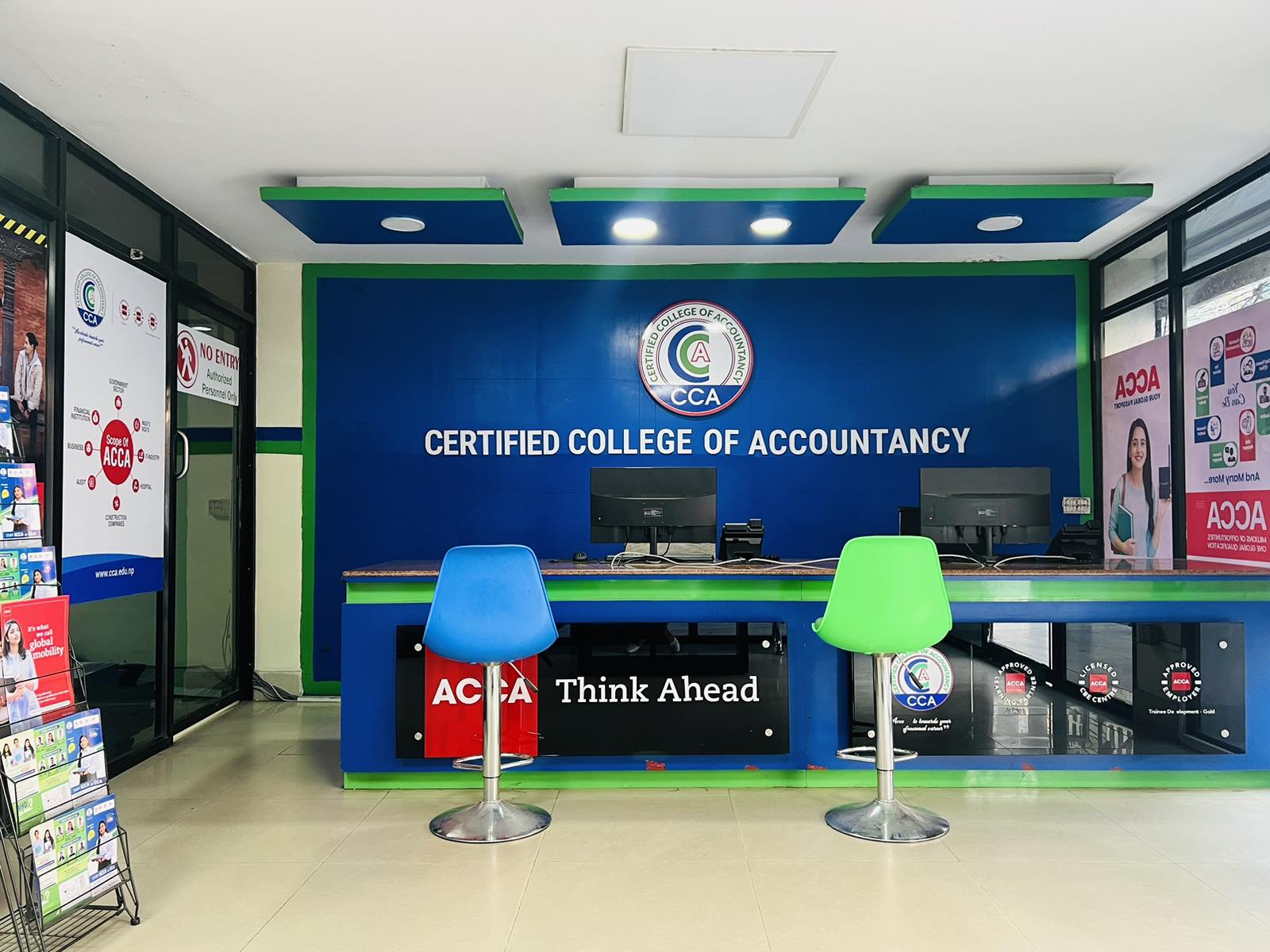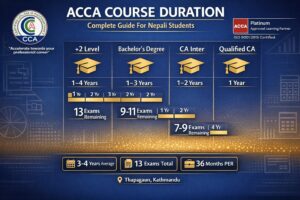Starting ACCA? Feeling curious or confused? You’re not alone! Whether you’re just out of +2 or switching from another course, here’s a simplified guide to answer the most common questions ACCA beginners ask online.
1. Can I join ACCA right after 12th grade?
Yes! ACCA accepts students straight after +2, A-levels, or equivalent qualifications. You don’t need to be from a commerce background—students from any background can study ACCA if you work hard and are resilient.
2. What are the minimum requirements to start ACCA?
To start directly:
Needs to complete +2 or any equivalent qualification
If you don’t meet these, you can begin with the Foundation in Accountancy (FIA) route, then move to the main ACCA course.
3. What is ACCA exactly?
ACCA (Association of Chartered Certified Accountants) is a globally recognized professional accounting qualification. It covers accounting, finance, auditing, taxation, and management skills. Once qualified, you can work in over 180+ countries.
4. What are exemptions and who gets them?
If you’ve studied similar subjects in BBS, BBA, CA, or A-levels, you might get exemptions (meaning you do not have to sit for exams of those papers or subjects) for early ACCA papers.
Example:
- BBA/BBS: May get some paper exemptions
- CA Inter: May get up to 9 papers
You’ll need to apply for exemptions with your academic transcripts and pay a small fee per exempted paper.
5. Is ACCA fully online, or do I have to go to college?
You can do ACCA:
- Face to Face live classes at a tuition provider/college
- Fully online (through free online platforms)
- Hybrid (mix of both)
Even the exams are computer-based now.
For more information visit: Why CCA
6. Can I do ACCA with a job or college?
Yes! ACCA is designed for flexibility. You can study part-time while working or attending university. Most students take 1–2 papers per sitting, depending on their schedule.
7. How hard is ACCA really?
It’s not impossible—but it does require consistent effort.
Some papers (like SBL, SBR, and AFM) are more analytical and time-pressured. Others (like MA, FA, and TX) are calculation-heavy. If you study smart and practice mock exams, you’ll be fine!
For more information visit: How Tough is ACCA
8. Is ACCA useful in Nepal and abroad?
Absolutely.
- In Nepal, ACCA-qualified professionals work in audit firms, banks, INGOs, and corporates.
- Globally, you’ll find ACCA members in UK, UAE, Singapore, Australia, and more.
Big 4 firms and multinationals prefer ACCA for their global standards.
9. How long does it take to complete ACCA?
If you’re focused, you can complete ACCA in 2.5 to 3 years. But there’s no rush—you can take your time and study at your own pace.
10. What is PER and do I need experience to qualify?
Yes. To become a fully qualified ACCA member, you need:
- 3 years of relevant work experience
- Completion of 9 performance objectives (PER)
- Ethics & Professional Skills module
You can gain this experience before, during, or after your exams.
11. Can I switch to ACCA from CA or other courses?
Yes! Many students from ICAN, ICAI, BBS, BBA or even engineering switch to ACCA.
You may be eligible for exemptions and can continue your journey with better flexibility and global recognition.
12. Which is better: Self-study or college classes?
Depends on your learning style.
- Self-study: Cheaper, flexible, but needs discipline
- Tuition providers: More guidance, support, and higher pass rates
13. Is it normal to feel confused in the beginning?
Totally normal. Everyone feels overwhelmed at first—ACCA is new and different from school or college. But once you clear your first few papers, you’ll build confidence.
14. How much does ACCA cost?
Rough estimate:
- Registration, exam, and tuition = NPR 6.5 to 7 lakhs total
- Pay-per-paper system, so you don’t need to pay everything at once
- Scholarships and discounts may be available
For More Information: ACCA Course Fee In Nepal
15. When are exams held?
There are 4 exam sessions every year:
- March, June, September, December
You can take up to 4 papers per sitting. Plus, early-level exams (Knowledge level) can be done on demand any time.
16. What kind of job can I get during ACCA studies?
During your ACCA studies, you can work in entry-level or trainee positions that give you practical experience in accounting, finance, or business. These jobs not only help you earn money but also count toward the 3-year Practical Experience Requirement (PER) needed to become a full ACCA member.
Here are common job roles for ACCA students:
- Audit Trainee – Assist in financial audits at firms.
- Accounts Assistant – Help maintain ledgers and financial records.
- Tax Intern – Support in tax return preparation and filing.
- Finance Intern – Work on budgeting, reporting, or analysis.
- Bookkeeper – Record daily financial transactions for businesses.
- Data Entry (Finance) – Handle invoices, receipts, and basic entries.
- Remote Freelance Jobs – Bookkeeping or financial tasks online.
As a qualified ACCA (i.e. after gaining membership after 3 years of PER), you can work in following roles:
- Financial Controller
- Internal Auditor
- Finance Manager
- Tax Consultant
- Chief Financial Officer (CFO)
- Audit Manager
- Business Consultant
17. What If I come from science or any other background?
You don’t have to worry if you don’t have a management background. ACCA designs it’s syllabus in such a way that students from any background can adopt to this course. It is designed from basics knowledge level so that it can be easier for students to adapt.






